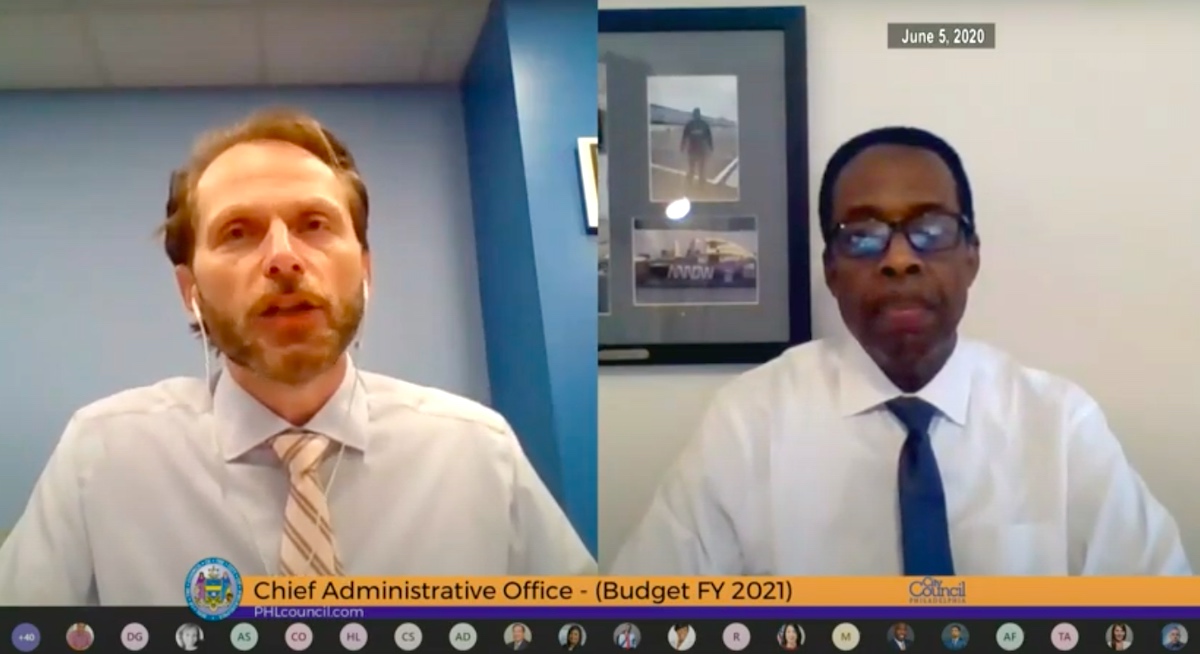
This editorial article is a part of Tech for the Common Good Month of Technical.ly's editorial calendar. This month’s theme is underwritten by Verizon 5G. This story was independently reported and not reviewed by Verizon before publication.
When the COVID-19 pandemic hit the region last March, Philadelphia’s Office of Innovation and Technology was tasked with getting city government to do something it isn’t well known for: adapt to new technology, and fast.
The office had just released a public-facing plan and set of strategies to drive innovation and change within local gov in October 2019. The report, officially called the “IT Strategic Plan: An Inclusive Approach to Crafting Vision and Strategy for Technology Across City Government,” addressed how OIT and other City departments can solves challenges in response to public needs.
The strategic plan hit on six themes surrounding technology and innovation:
- Support and develop the local technology ecosystem
- Strive for digital access and equity
- Improve government efficiency and effectiveness
- Enhance online public service delivery
- Promote community-driven technology
- Strengthen and advance internal operations and infrastructure
When the pandemic forced the city to lock down five months later, the OIT team — made up of about 460 people, spread across departments as IT resources — spent about two months making sure different government departments could work remotely. The City spent $7.6 million on laptops, videoconferencing and software or SaaS services on remote work needs. Of that, about $5 million was spent on nearly 3,400 devices, and $1.34 million was spent on security software across departments, a City spokesperson said; much of the cost of laptops was covered by CARES Act funding.
Once remote work was up and running, the IT strategic plan became a “guidebook” of sorts, Chief Information Officer Mark Wheeler told Technical.ly. It helped the department stay focused.
“When we were in crisis mode, there wasn’t a lot of time to reflect,” he sad. “When the emergency happened, we were already on the right trajectory.”
Focus on digital equity
Andrew Buss, the deputy CIO for Innovation Management within OIT, said he felt the pandemic “amplified a lot of the work we were doing or intending to do,” like focusing on issues of digital equity and community connectedness via technology.
Some of the original themes from the IT strategic plan were still implemented over the last year, Buss said. That included increasing digital services and information and with a focus on important COVID-19 information, including 11 language translations. Buss also called out ongoing projects like a resource finder, the office’s public-private tech pilots its Innovation Fund.
It shattered our own disbelief in our own ability to move quickly.
But a special, and unavoidable focus came to the department throughout the pandemic: the issue of digital equity. Existing organizational relationships, like with the Digital Literacy Alliance, made programs like the digital navigator program — which helps residents better access and use technology and the internet — possible.
But it became clear almost immediately that the pandemic would widen the digital divide in Philadelphia, and for large-scale institutions, such as the School District of Philadelphia, which were operating in a way they never had.
Last July, OIT rolled out a policy initiative put forth by the Mayor’s Office called the Digital Equity Coordinating Committee. Its aim was to connect community stakeholders to ensure Philadelphians who need access to internet and technology will be able to get it.
For much of last summer, the department’s time was relegated to PHL ConnectED, the plan for getting eligible K-12 households set up with free wired internet from Comcast’s Internet Essentials program to ensure students could participate in remote learning. By March, the plan had connected 15,000 families for digital learning.

CIO Mark Wheeler and City Council President Darrell Clarke at the June 5, 2020 budget hearing. (Screenshot via YouTube)
Stephanie Tipton, the City’s chief administrative officer, said that became possible by bringing shared leadership from different community stakeholders together. Before last summer’s remote world, it would have been a lot harder to get all those folks together in a room together.
“It helped shut down the silos that just naturally exist in a big bureaucracy to really get things done and get things done quickly,” Tipton said. “It also brought people onboard who maybe traditionally wouldn’t have been engaged in something like this.”
That culture of gathering folks remotely is something they plan on continuing, with the hopes that the efficiency found last summer will endure, she said.
Government can be slow to change, Wheeler said. He thinks the work across city government over the last 15 months has changed that assumption.
“It shattered our own disbelief in our own ability to move quickly and adopt and change quickly,” he said.
To the future
As the department looks toward the future, they’re excited to pick up some projects that had been paused, like the newly upgraded Keyspot program, leadership said.
The pandemic’s forced innovation also resulted in a $10 million fund to spend over the next two years in an initiative called the Operations Transformation Fund. It will fund projects across departments that are aimed at building upon some of the innovations, cost savings or efficiencies employees found in the last year. Essentially, if a department has found a better, quicker way to operate this year amid the pandemic, OIT wants to hear about it.
OIT learned that rapid digital transformation is indeed possible. At the same time, persisting issues of digital equity have existed for some time and aren't going away.
The fund will launch July 1, and seek to make these solutions found over the last year scalable to more departments. Tipton said she’s seen a number of projects around digitization and resource sharing that she feels could be implemented across all of city government. A program officer role to support the fund just opened up.
They’re also in the position to be thinking about how city government should operate in a post-pandemic world. Before last year, the City had a pretty stringent WFH policy; it was hard to think that government work could get done without sitting in the same place from 8 a.m. to 5 p.m. every day, Wheeler said.
But because government employees were outfitted with the necessary remote work equipment, when offices do open, most departments will continue some level of remote work. It’s an opportunity to think about downsizing or consolidating the physical space necessary to run city government, Tipton said.
While one of the department’s biggest takeaways from this past year was learning that rapid digital transformation is indeed possible, it acknowledges that that persisting issues of digital equity have existed for some time and aren’t going away. While students are heading to in-person school this fall, they’ll still need internet connection for homework, ESL folks will still need access to ever-changing information, and industries like healthcare will continue using new digital tools.
Wheeler said he feels lucky that the City had acknowledged these equity issues and build some programing around it before the pandemic started, so they weren’t left as disconnected as other government teams. While other cities were wondering if they should pivot in a new direction, they felt they were on the right path.
“We’d thought through this. We’d spent time thinking about the community’s voices and underrepresented voices,” Wheeler said. “We didn’t have to spend time learning how to bring it in, we had already done that work to recognize we’d need other mechanisms to bring them in.”
Join the conversation!
Find news, events, jobs and people who share your interests on Technical.ly's open community Slack

Philly daily roundup: Women's health startup wins pitch; $204M for internet access; 'GamingWalls' for sports venues

Philly daily roundup: East Market coworking; Temple's $2.5M engineering donation; WITS spring summit

Philly daily roundup: Jason Bannon leaves Ben Franklin; $26M for narcolepsy treatment; Philly Tech Calendar turns one


